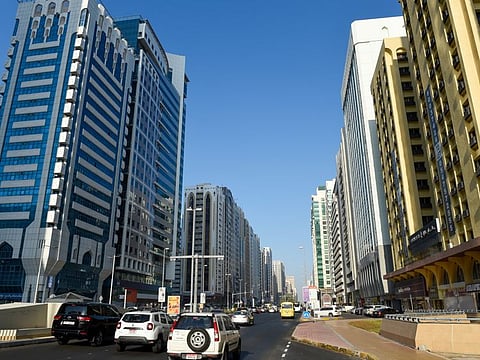How Abu Dhabi is reducing the severity of road traffic accidents in the emirate
New initiative to reduce rate of severe Abu Dhabi traffic accidents, fatalities to zero

Abu Dhabi: Abu Dhabi has seen a 50 per cent reduction in collisions, and serious traffic injuries and fatalities over the last decade, with traffic authorities are now working to reduce this incidence further, a top transportation official said in the capital.
In order to minimise the chance for human errors, and reduce the severity of collisions, traffic authorities are making sure that road infrastructure and other elements of traffic systems are designed to be ‘forgiving’, Sumaya Alneyadi, road safety section head at the emirate’s public transport regulator, the Integrated Transport Centre (ITC) told Gulf News on the sidelines of the Mobility Education Summit in the capital.
Reducing severity
“We want to reduce trauma and reduce the severity of road traffic collisions through the use of recommendations from Safe Systems, [a human-centred approached to making roads safer for all users]. These include changes in the way we design, build and operate our roads infrastructure, as well as enforcement and education initiatives. Traffic safety is a shared initiative, and all pillars must be strengthened to have a long term sustainable reduction in Killed and Seriously Injured (KSI) incidents,” Alneyadi said.
The current decade of action also calls for safer speeds, a pillar that has been extended from the earlier decade of action, the official added. This places a share of the responsibility for safer roads on motorists.
Safety summit
The inaugural Mobility Education Summit in Abu Dhabi discussed these road safety and sustainable driving initiatives in a three-day conference. The event is being organised by the Emirates Driving Company, in partnership with the Abu Dhabi Police, the Department of Municipalities and Transport, the ITC, and the European Driving Schools Association.
Driver education
Abu Dhabi’s Joint Traffic Safety Committee has been rolling out various initiatives in recent years. For instance, focused campaigns are working to educate motorcycle delivery riders, whose numbers have swelled in recent years, Alneyadi explained.
Road design
Road and mobility infrastructure is also being built or redesigned, including e-mobility and cycling facilities.
“This includes improvements to infrastructure that are being planned to address safety at very high risk junctions and pedestrian areas. In addition, road side safety and review of vehicle restraint systems are being updated and upgraded to the latest standards, and only tested systems are being approved for use,” Alneyadi said.
“Collisions [cannot be avoided fully] as drivers make unintentional mistakes. However, these collisions should not lead to death or life-altering disability, which is why sustained efforts are being made to reduce KSI incidents on the Abu Dhabi roads to zero. This is our long-term Vision Zero 2040 plan.” She added.
Advanced enforcement
The other aspect that is a key element of this initiative is enforcement. In fact, the Abu Dhabi Police last year activated a radar monitoring system to detect risky driving behaviours, like the use of hand-held devices and the failure to wear a seat belt. The system automatically sends a message urging the driver to correct the behaviour.
Smart traffic
Abu Dhabi’s push toward a smart traffic system, which helps reduce carbon emissions, was also highlighted at the three-day Summit.
Fatmah Salem Hantoubi, section head for transport services planning with the ITC’s ITP division, discussed how the capital is scaling up the operations of driverless vehicles.
There are currently five autonomous taxis, known as TXAIS, in operation on Yas Island which transport passengers between nine pick up and drop off points. The free service, which was first launched in November 2021, will soon expand to include eight robotaxis and four robo minibuses on Yas Island and Saadiyar Island, the official said.
Authorities are also working to develop charging infrastructure on the islands to support the smart traffic alternatives.
“We are pleased to launch the Mobility Education Summit to advance the future of the mobility sector and enhance aspects of sustainability and technological innovation, while attracting stakeholders from the sector from around the world, to discuss the most important issues related to mobility. This first-of-its-kind event provides a global platform for exchanging knowledge and experiences and exploring the latest initiatives in the sector, with a focus on the future of mobility, sustainability and traffic awareness,” Khalid Al Shemeili, chief executive officer at Emirates Driving Company.
Sign up for the Daily Briefing
Get the latest news and updates straight to your inbox


